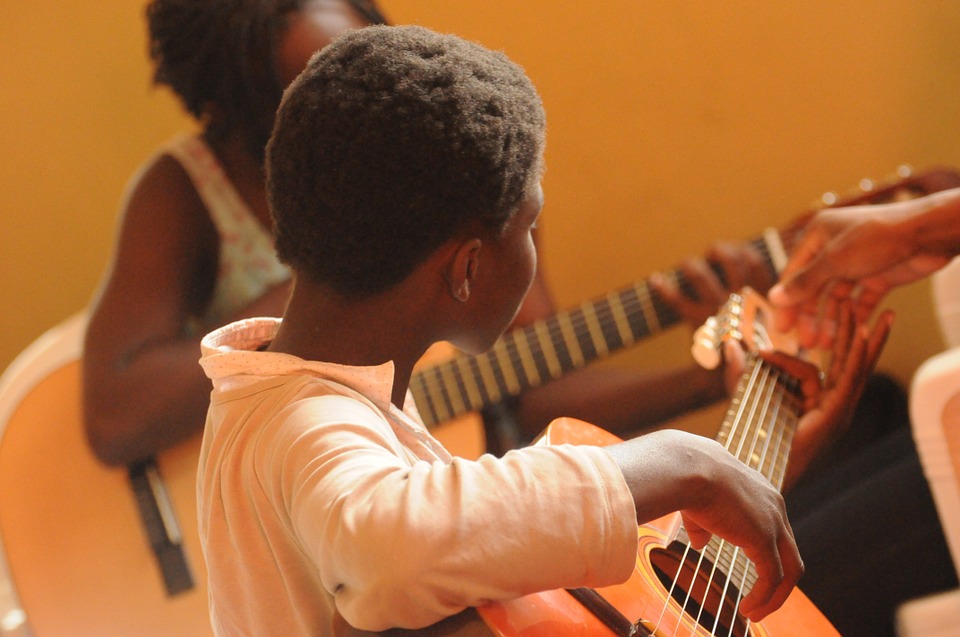Music therapy makes children with autism more socially aware
Author: Tibi Puiu
A new study performed by Canadian researchers found that musical training significantly improves social communication in autistic children. The improvements were significant after only 12 weekly sessions, suggesting that music can have a lasting and profound effect on the quality of life of autistic children and their families.
For decades, scientists have known that there’s some kind of relationship between autism spectrum disorder (ASD) and music, seeing how a disproportionate amount of those with this disorder have “perfect pitch” — the ability to instantly and effortlessly identify the pitch of a tone without the use of a reference tone. A person who possesses this rare gift can, for instance, hear any single note and tell if it’s an A or B-flat or anything else.
Absolute pitch seems to run in families, suggesting a genetic link. Some researchers also think studying this musical ability can also reveal valuable clues about some of the genes involved in autism and, more broadly, to how the human brain develops and functions.
It’s not all about perfect pitch, though — people with ASD seem to have a much finer auditory experience in general. They might be able to hear the buzzing of electricity in the walls or find noisy environments simply unbearable, something which was was previously confirmed by British researchers.
In a new study, scientists at the Université de Montréal and McGill University wanted to get a clearer picture of the impact musical lessons can have on individuals with ASD. They enlisted 51 children with ASD, ages 6 to 12, some of whom received a music-based intervention for three months.
The parents of each child first completed standard questionnaires to gauge the child’s social communication skills, the family’s quality of life, and the ASD symptom severity. MRI scans were performed for each child in order to establish a baseline of brain activity.
Children were randomly assigned to one of two groups: one received music-based therapy, the other did not. Both groups worked with a therapist whose main task was to foster reciprocal interaction. The music-therapy group, however, also sang and played different musical instruments for 45 minutes every week.
At the end of the music therapy sessions, parents of children in this group reported significant improvements in communication skills and family quality of life compared to those in the control group. Parents of children in both groups did not report reductions in autism severity.
“Importantly, our study, as well as a recent large-scale clinical trial on music intervention, did not find changes with respect to autism symptoms themselves,” said Megha Sharda, a postdoctoral fellow at Université de Montréal and lead author of the new research, published in Translational Psychiatry. “This may be because we do not have a tool sensitive enough to directly measure changes in social interaction behaviors.”
Brain scans suggest that the improved communication skills in the kids that received musical therapy may be the result of increased connectivity between the auditory and motor regions of the brain, and decreased connectivity between auditory and visual regions (which are commonly over-connected in individuals with ASD).
According to the Canadian researchers, when connectivity between these regions is sub-optimal, it becomes difficult to engage in social interaction. Tuning into a conversation implies a series of processes: paying attention to what the other person is saying, recognizing cues that hint when your turn to speak comes in, and ignoring irrelevant noise. All of these are easy tasks for most people, but can be challenging for individuals with ASD.
The findings show that musical intervention can make a major difference when it comes to improving social skills in children with ASD. Many teachers and parents could find it useful for school-age children to practice some form of music. What’s more, the neurological link between musical training and social communication adds to a body of evidence that suggests ASD also has an important influence on sensory processing in the brain.
“The universal appeal of music makes it globally applicable and can be implemented with relatively few resources on a large scale in multiple settings such as home and school,” said Aparna Nadig, an associate professor at McGill’s SCSD and co-senior author of the study with Krista Hyde, an associate professor of psychology at UdeM.
The findings appeared in the journal Translational Psychiatry.
Main photo: Credit: Pixabay
via: www.zmescience.com
